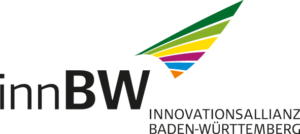Tech for Democracy
German-Israeli Research Initiative on Digital Democracy
Start: 06/2019
End: 03/2021
Visual medical inspection is one of the most important pillars in today’s skin cancer diagnostics: To make a diagnosis, medical professionals examine skin lesions visually. Current artificial intelligence (AI) systems achieve the accuracy of a specialized dermatologist. However, there is still room for improvement. In contrast to already existing approaches, the Intelligente Diagnostik (Intelligent Diagnostics) joint project aims to significantly increase the amount of medical data collected in each measurement to improve diagnostic quality. Intelligente Diagnostik is using quantitative multi- and hyperspectral imaging to determine physical and chemical properties of potential skin changes. This measurement method operates optically and therefore non-invasive. Based on these extensive data sets, new AI models will then be developed and trained. This will allow medical digital diagnostics to be used even more accurately, resulting in improved early detection of skin cancer and thus better medical prevention for the general population, thereby giving the medium-sized healthcare industry in Baden-Württemberg an innovative edge.
In addition to leading the consortium, the FZI is responsible for the development of the data and model management platform, which manages the newly created data sets and controls the training of the AI models.
In this research focus, the FZI concentrates on practical research into the key technology of Artificial Intelligence (AI). Innovative AI solutions are developed and transferred to application areas such as mobility, robotics, healthcare technology, logistics, production, and supply and disposal on behalf of our partners and customers.
Funding notice:
The Intelligente Diagnostik project is funded by the Ministry of Economic Affairs, Labour and Tourism.
Project partners:
Large data sets combined with artificial intelligence can offer significant added value in digital medical diagnostics. Artificial intelligence is already being used in clinical settings today. Examples include the classification of tens of thousands of digital photographs to provide diagnosis based on a new image. In order to improve the quality of diagnosis, we need even more data of skin lesions to train AI models. This means: As part of the funding, we will specifically build up data sets. We will also develop a platform to provide data and model management capabilities. Quantitative imaging techniques will be used to collect data, which will significantly increase in the amount of data per image. Our goal is to take digital medical diagnostics of skin cancer to a new level through quantitative imaging techniques and improved AI models.

Five institutes of the Innovationsallianz Baden-Württemberg (innBW) are involved in the project.
The innBW is a unique alliance in Germany of 13 non-university application-oriented research institutes supported by the Ministry of Economic Affairs, Labour and Tourism.


German-Israeli Research Initiative on Digital Democracy
AI in the Mobility Sector
Supercomputing Platform for Highly Automated Vehicles
Cybersecurity for SMEs
Data management repository for care-supporting AI applications
Innovation with Cybersecurity for SMEs in Baden-Württemberg
Hardening of embedded RISC-V software by means of code transformations
Automatic Integration of Avionik Racks via Artificial Intelligence
Buildings as efficient and interoperable components of the future energy system
Hybrid building twins for increased energy efficiency